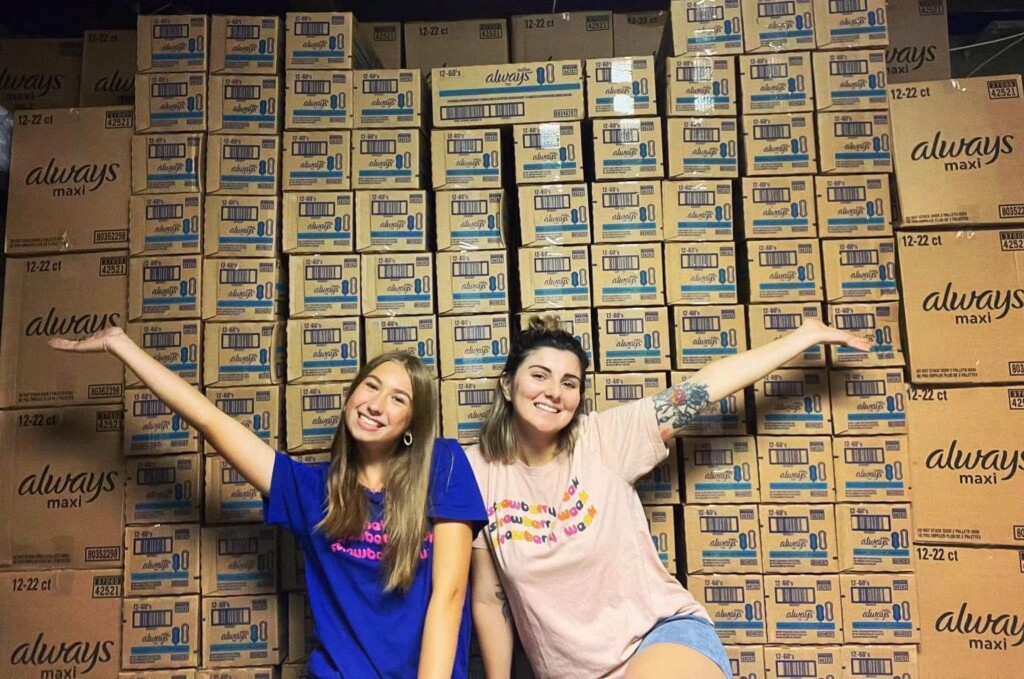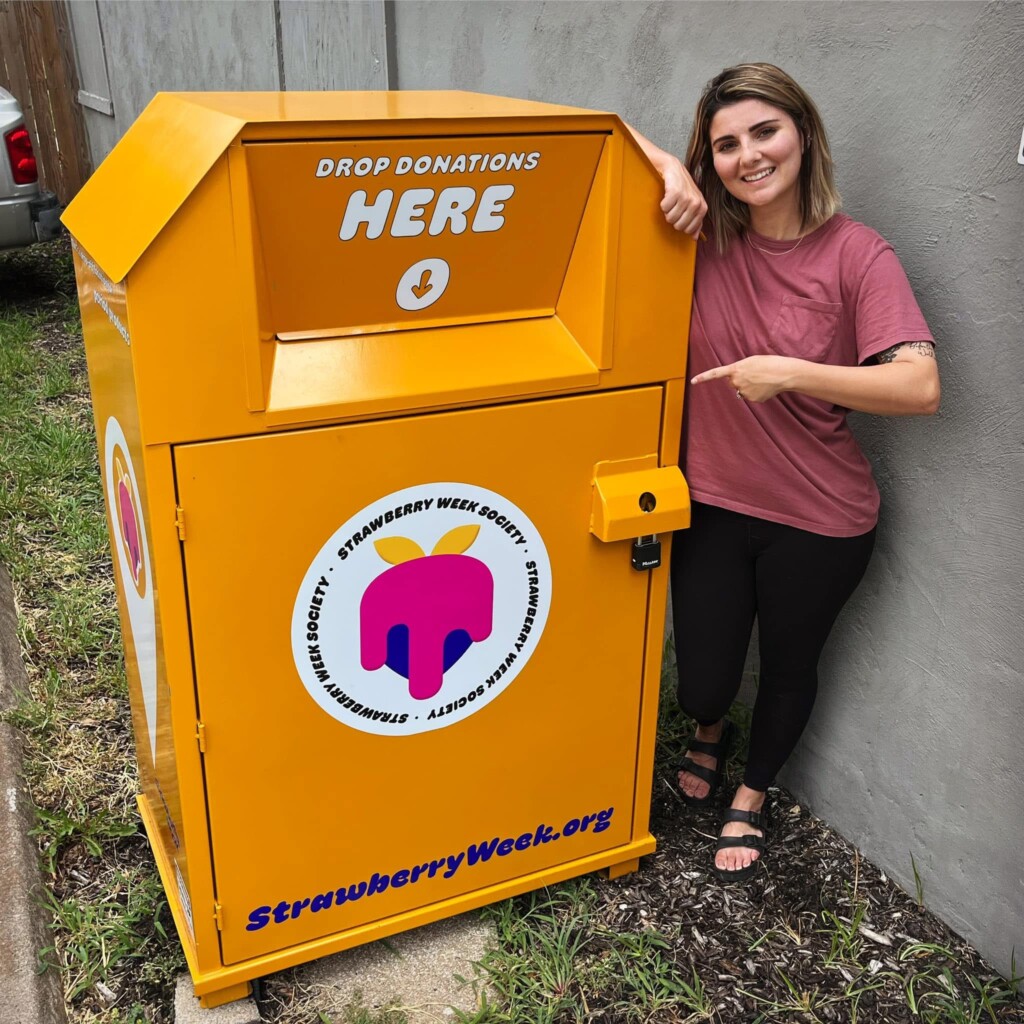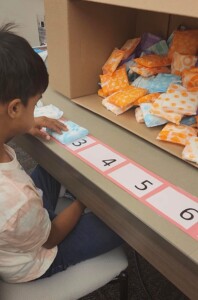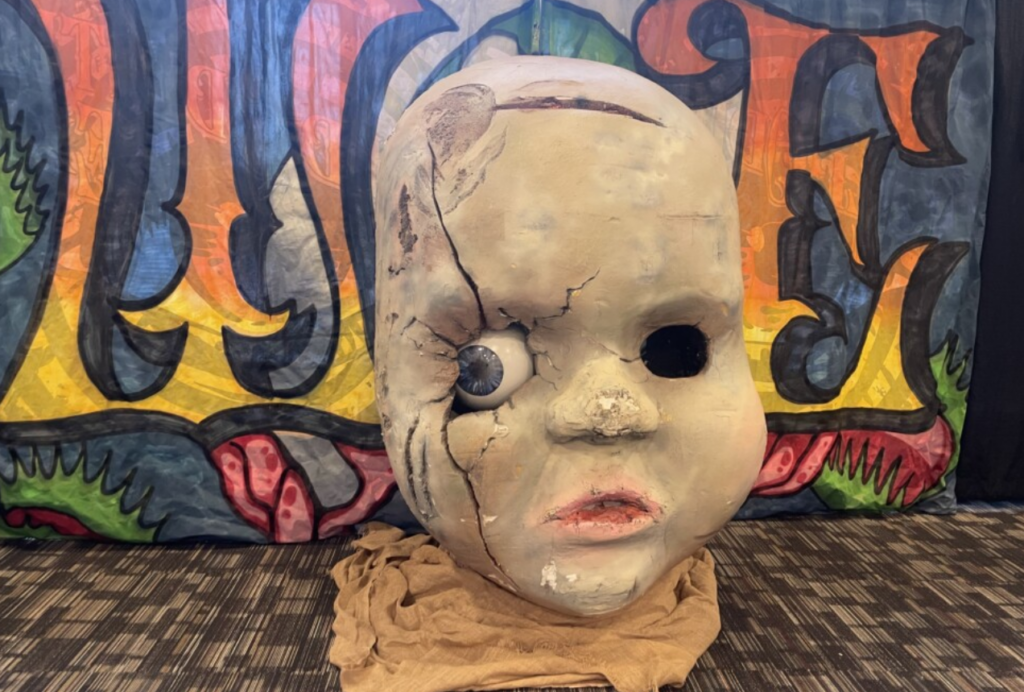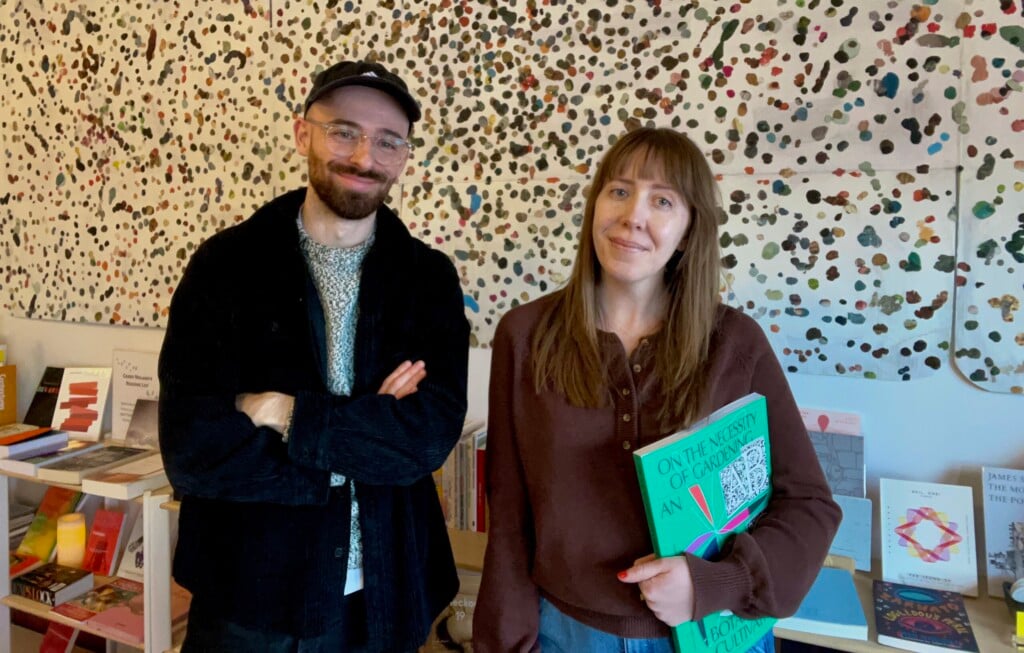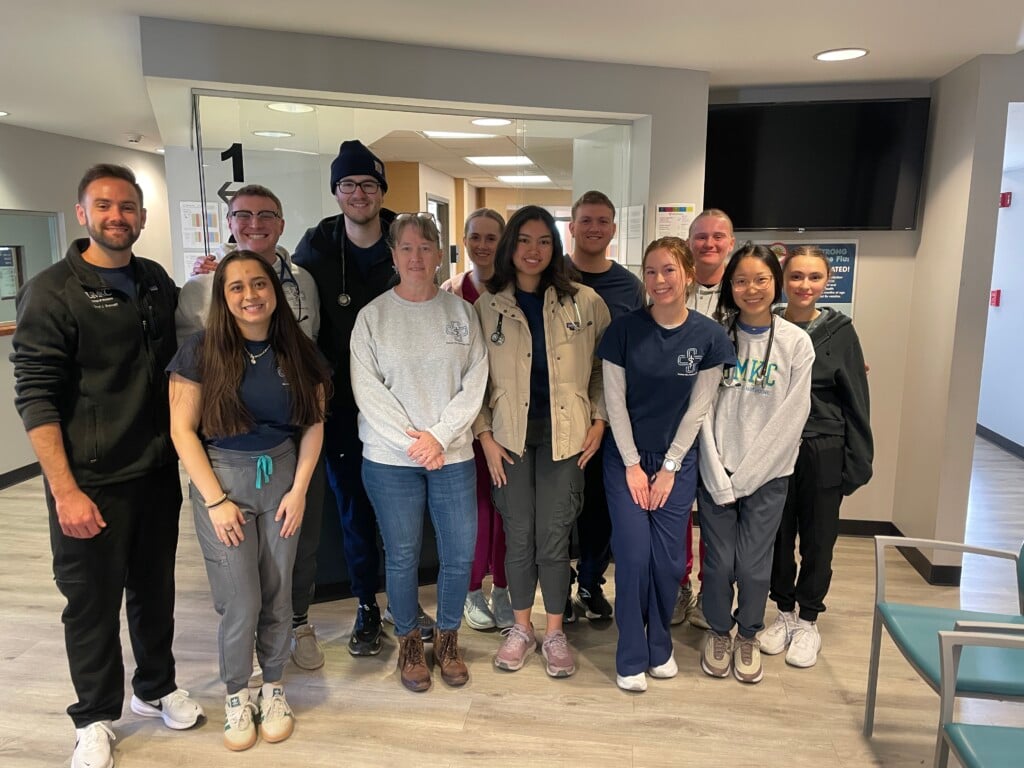KC Cares: Strawberry Week syncs sanitary solutions
Having enough pads or tampons each month is something you might take for granted. For those who don’t live this luxury, Strawberry Week is there to help.
Since December 2021, the local non-profit has been combatting period poverty by collecting and distributing sanitary supplies to people who need them.
Much of Strawberry Week’s inventory comes from organized drives or gets purchased via cash donations. As long as the products are individually wrapped, you can even donate opened packages at the group’s drop box at 204 W 82nd St. in Waldo.
Founder Micheala Miller keeps the administrative costs low and says that 98 cents of every dollar she raises goes toward buying period products to share.
“I really like how grassroots we are, and I really don’t plan on trying to be this big, massive thing. Of course, if I can distribute more period products, that’s my goal, but we’re making an impact and maximizing our donations this way,” she says.
Miller works with numerous places in the community to be able to connect with the people who need free period products—schools, libraries, food pantries, and more. The impact of not having period supplies stretches further than many might think.
“We’re dealing with an attendance issue for kids who end up staying home and missing school, and it’s not just one month. Periods come pretty consistently for the average person,” Miller says.
She’s seen some progress. Strawberry Week partnered with the Kansas City Public Library to provide free period products in its bathrooms, and after a while, the library incorporated money for providing free period products into its budget.
Miller views period products as an essential that should be provided free alongside soap and toilet paper in every public bathroom. Without help, some people use a rolled-up sock, reuse period products, or use them for too long—all of which carry health risks.
“It makes room in their budgets to allocate money toward groceries, as opposed to choosing between groceries and period products. It’s a monthly expense. Depending on how many menstruators live in your household, it can add up,” Miller says.
Over the years, Miller has provided testimony to the Kansas legislature as it has considered removing sales tax on period products, though such a bill has not yet passed.
Miller says that health and hygiene pantries tell her period products are their least donated item. Overall, she gets more requests for pads than for tampons, though the organization can always use both.
“We need pads more than anything—all kinds of pads,” Miller says.
That can be regular pads, especially for kids who aren’t using tampons, or thicker pads for postpartum mothers.
With assembling help from a group of students in a life skills class at Aubry Bend Middle School, she also distributes period packs that contain seven pads, seven tampons, and seven liners in a discrete reusable waterproof bag.
“It has taught students the importance of volunteering and supporting others in need. It has also provided a great outlet for job skills and just the basic foundation of sequencing and knowing how to follow the directions, counting to seven, and following a task from start to finish,” says Virginia Pattison, intensive resource teacher.
Hannah Brockway, director of volunteers and outreach at Bishop Sullivan Center, takes as many of these packs as she can get to give away in the center’s food pantry; But the need is enormous.
“If she could somehow get us enough tampons and pads for 60,000 people, we would gladly take them, but she’s got a lot of other organizations she’s giving stuff to,” Brockway says.
A lack of sanitary products hits the most vulnerable people particularly hard.
“Especially if you’re living out on the street, and you don’t have a place to go to the bathroom, that’s one obstacle, and being able to afford tampons and pads is another obstacle,” Brockway says. “So, if you at least have the tampons and pads and you need to change them outside, which is not optimal, at least you’re not worrying about how you’re going to take care of the bleeding.”
Without these products, their few items of clothing are constantly getting ruined.
“It’s a dignity thing. I don’t like walking around with giant period stains on my clothes, and they don’t either,” Brockway says. “Brass tacks—It means a great deal to them.”
For more information about Strawberry Week and how you can help get involved, visit strawberryweek.org.

